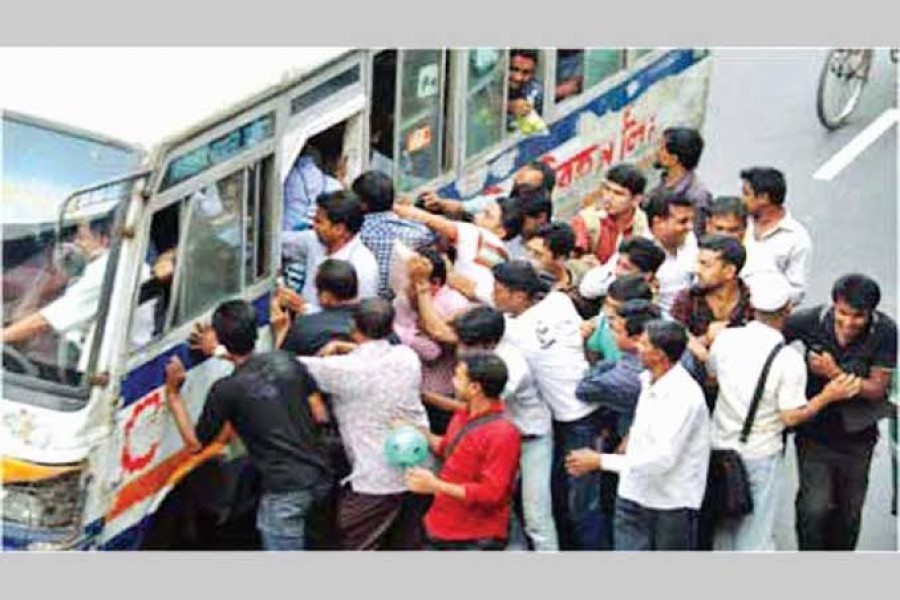A lot has been discussed about the terrible condition of public buses in Dhaka. Commuters are forced to take their regular rides on risky and ramshackle buses and minibuses -ones that are also polluting the air every day. To get rid of these buses, many recommendations have also been placed. Nevertheless, these buses are still running on the roads and more are joining the fleet.
It seems that the bus operators have very little interest to dismantle these semi-fit and unfit vehicles. Regulators also appear indifferent to this hazard. Rent seekers are also active there to grab undue shares of profits from the transport business. All these make it almost impossible to overhaul the public transport system in Dhaka. Instead, overlapping and uncoordinated activities of different government bodies and agencies make the thing chaotic.
One major step is, however, needed to improve the situation within a short span of time. Replacing these buses with uniform or similar new buses will bring a dramatic change. The government may gradually replace these buses with new buses from the fleet of Bangladesh Road Transport Corporation (BRTC). As private bus owners don't find any incentive to replace their old buses with new ones, the second best option may be intervention by the government through BRTC.
For a mega city like Dhaka where millions of commuters have to travel daily in different directions, buses available with BRTC fleet are the most suitable. Both the low-floor regular and double-decker buses of BRTC can ensure a decent travel which is entirely absent in the other buses running on the roads. BRTC buses can accommodate more commuters with reasonable comfort.
It is evident that the BRTC has adequate buses in its fleet. The state-owned transport operators have a small number of buses. There is a regular procurement of buses which means it is easy for the BRTC to import buses from outside, though at the cost of irregularities and misappropriations of public money. The problem is that the BRTC can't operate most of its routes efficiently and profitably. Strong resistance from private bus owners-workers is the main reason to keep the bus services of BRTC limited and scattered.
Against the backdrop, the government may provide BRTC buses to private operators in Dhaka as a replacement of existing indecent buses. Private operators will be able to run the buses more efficiently. Instead of providing direct financial support or compensation, procuring buses through BRTC and transferring these to private operators may work better.
It is also important to understand whether the ambitious replacement programme will work or not. In this connection, the government may choose a few routes initially and replace the buses running on them. An agreement may be signed with the private operators to share the revenue. In fact, the resumption of BRTC's double-decker service on Dhaka-Narayanganj route in partnership with a private bus owner is such an example. Thus a new public-private partnership (PPP) model has emerged. Testing the viability of the model by replacing private buses and minibuses on a few routes in Dhaka may bring a desirable outcome.


